As a household name, the Honda Civic is popular among those looking for a no-nonsense, rational runabout. However, the moniker has a degree of duality because it also serves as a tool for those looking for something genuinely fun to drive.
Owing to its multi-decade-long reputation for robust engineering and reliability, the Honda Civic managed to develop a cult-like following of its own, especially in the tuner community.
Its accessibility and extensive aftermarket support are reasons why many gearheads are drawn towards the compact Honda.
A gateway to cheap thrills, the Honda Civic is an excellent platform for budding and veteran enthusiasts alike. It’s relatively affordable and has plenty of headroom for various mods and upgrades.
The JDM superstar is known for its potential as a versatile yet fun little daily driver, but not every generation of the Civic is celebrated in the community. In this article, we’ll pick out the best of the bunch in terms of tuning and modifications.
Are Honda Civics Good Project Cars?
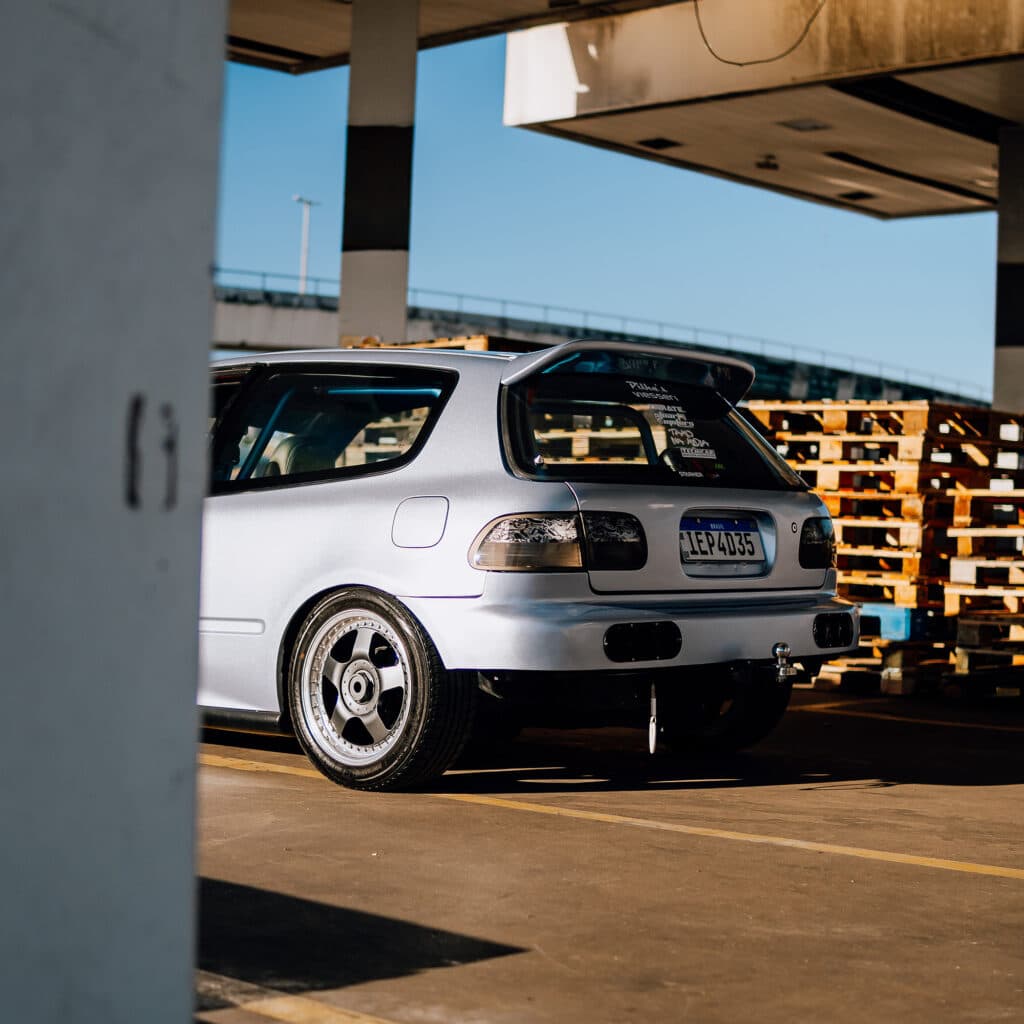
We could wax lyrical about the Civic for hours on end. While the platform is an excellent starting point for a project car, its reputation has always been a bit tainted.
We’ve seen many Civics of late are meme-worthy, with the overall sentiment leaning toward annoying rather than exciting.
Just as with how Mustangs have certain stereotypes associated with it, so does the Civic. Needless to say, not every Civic stays true to its colloquial image.

The problem is that the platform is so accessible, it’s practically a blank canvas for anyone with a valid driver’s license, which means not every modified Civic is err… Tasteful.
That said, RICE or “Race-Inspired Cosmetic Enhancements” (someone made that up) is not necessarily a bad thing. It’s a matter of taste.
If you want a car with non-functional hood scoops and fake exhaust tips instead of actual mods like bigger fuel injectors, a cold air intake, and an axle-back exhaust at the very least, that’s perfectly fine.
Just know that purists (and most enthusiasts) will probably scoff at it and post it to r/shittycarmods. Unless the non-functional build is a decoy for what’s essentially the perfect sleeper car. That would be righteous.
Many Civics are tastefully modified with just exterior add-ons, and many aren’t. With that out of the way, here are some of the best Honda Civic generations to kick-start your modifying journey.
Best Honda Civic Years For Tuning
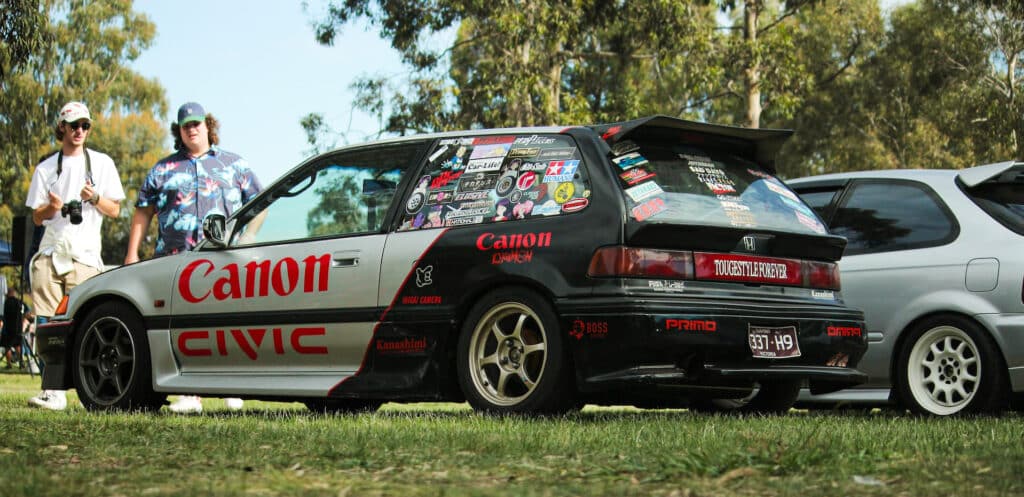
The Honda Civic spans 11 generations, of which most live up to their name. Although the Civic has evolved dramatically over the years, there are oddballs that you should steer clear of.
Choosing the right car for your modifications is crucial. Having a good starting point amounts to a positive ownership experience in the long run.
If you’re eyeing the best tuner Honda Civic, avoid super early 1st and 2nd generation cars, and instead look for the 5th, 6th, and 7th-gen models.
These Civics are affordable, easily sourced, and get decent aftermarket support. Additionally, reliability is excellent, and replacement parts don’t cost a fortune.
5th-gen (1992-1995)
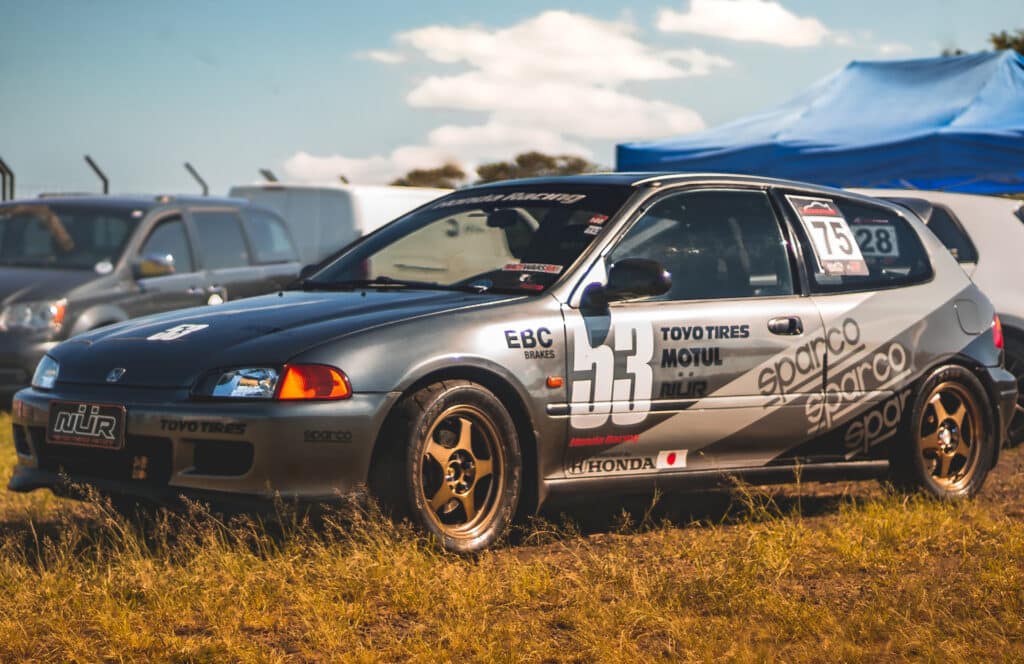
The best thing about the 5th-gen Civic is that you get Honda’s iconic 1.6L B16 engine. What makes this special is that this engine is the first in Honda’s lineup to feature the brand’s trademark VTEC technology.
The engine is a well-known favorite among Honda enthusiasts and gets excellent aftermarket support.
Bear in mind that these 5th-gen Civics are OBDI, so they’re a bit lacking in terms of tech. Also, they may not be the best handling of all Civics, but that’s easily sorted with a set of coilovers.
What’s appealing is that you can source a 5th-gen Civic for a relative bargain, with del Sols commanding a small premium.
6th-gen (1996-2000)
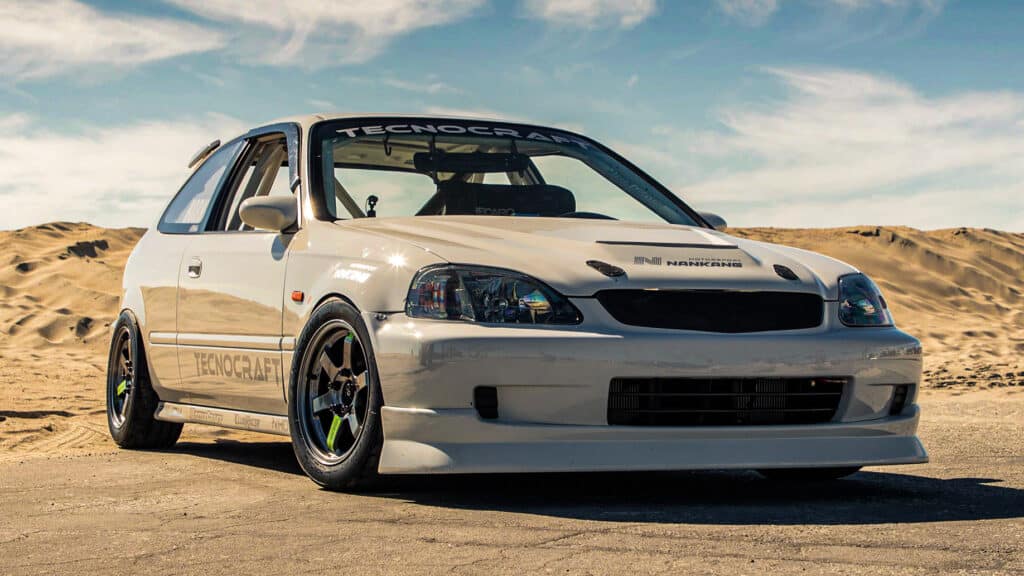
Perhaps the best pick of the bunch is the 6th-gen Civic. Not only is it relatively affordable and easily sourced, but the car had pretty decent chassis geometry too.
6th-gen Civics featured double-wishbone suspension at the front, which is a dynamic advantage, especially when paired with the revered B16B motor. Some of these also came with the D16Y8 engine.
Found in the 6th-gen Type R, the B16B is known for its rev-friendly nature while outputting close to 185 hp.
Although this generation of Type Rs can be expensive (import only), you could, however, settle for an Si, as Honda supplied the model with an equally capable but less powerful B16A2 engine.
7th-gen (2001-2005)
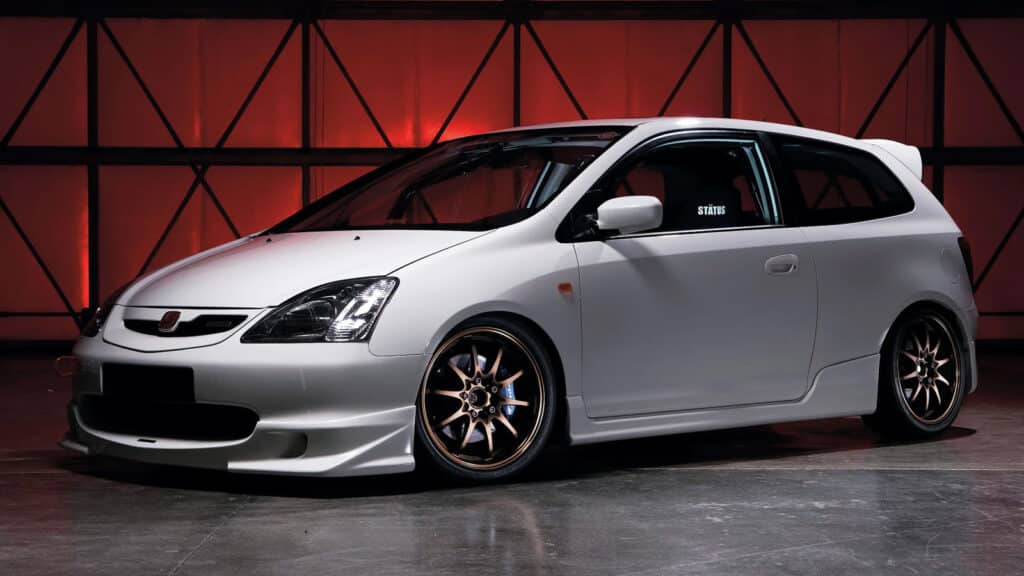
This generation of Civic may not be to everyone’s taste, owing to Honda’s questionable styling choice. But what will entice the enthusiast in you is the K20 4-banger, without question, one of the best Honda engines to build.
Often considered one of the best and most sought-after engines for swapping, Honda’s K20 engine is a powerhouse with lots of untapped potential. You can easily tune one of those to well over 500 hp and still stay reliable.
The best part is that these 7th-gen Civics are fairly cheap to source, with decent examples costing you under $7-8k. Also, aftermarket support is pretty generous, so building a fun daily driver won’t cost you an arm and a leg.
Honorable Mentions
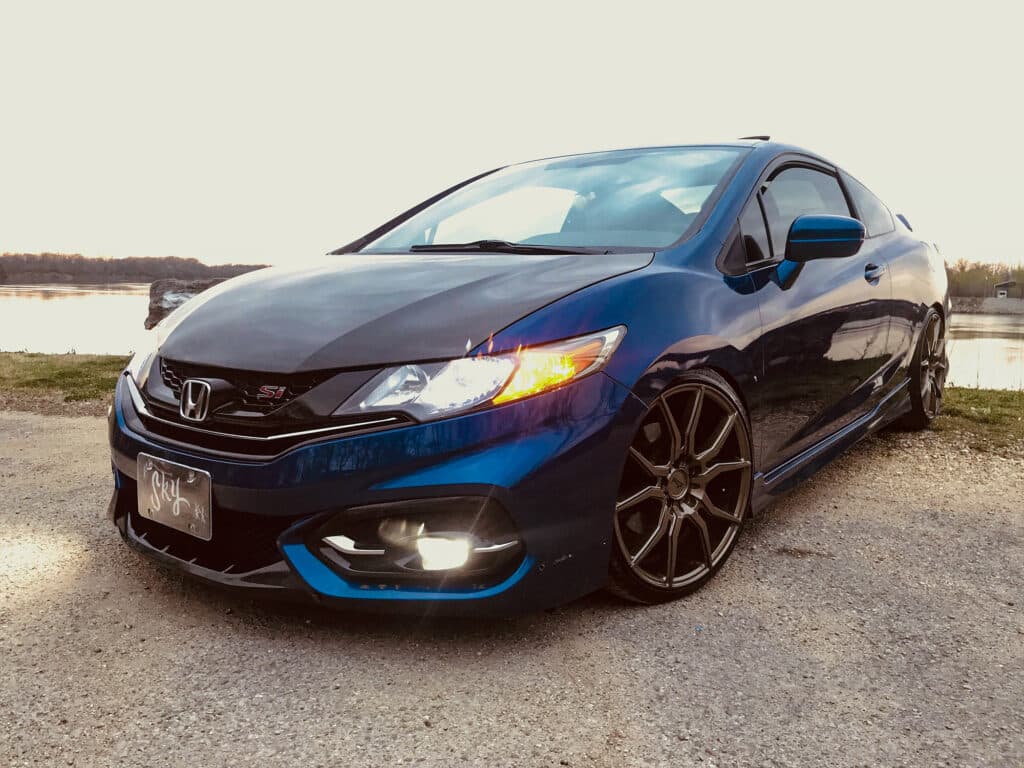
Si trims of the 8th and 9th-gen Civic trim levels are excellent for nipping around town and the occasional track day. But as you’d expect, they are significantly more expensive than their predecessors.
Moving on to Gen 10, the Civic got polarizing styling but kept enthusiasts interested in the model, especially the Si, thanks to its 205 hp 1.5L turbo-4. We’d include the FD2R, but what’s the point? It’s pretty done up from the factory already.
But of course, those who were willing to spend more were offered the 306 hp Type-R, with its wild yet questionable styling cues and incredible performance. The 11th-gen toned things down, but it got a lot more expensive.
Additionally, the 11th-gen Civic Type-R became the most powerful Type-R Honda has ever produced, with the K20C1 (same engine as the 10th-gen) now pumping out 315 hp.
Mods And Upgrades for Your Civic
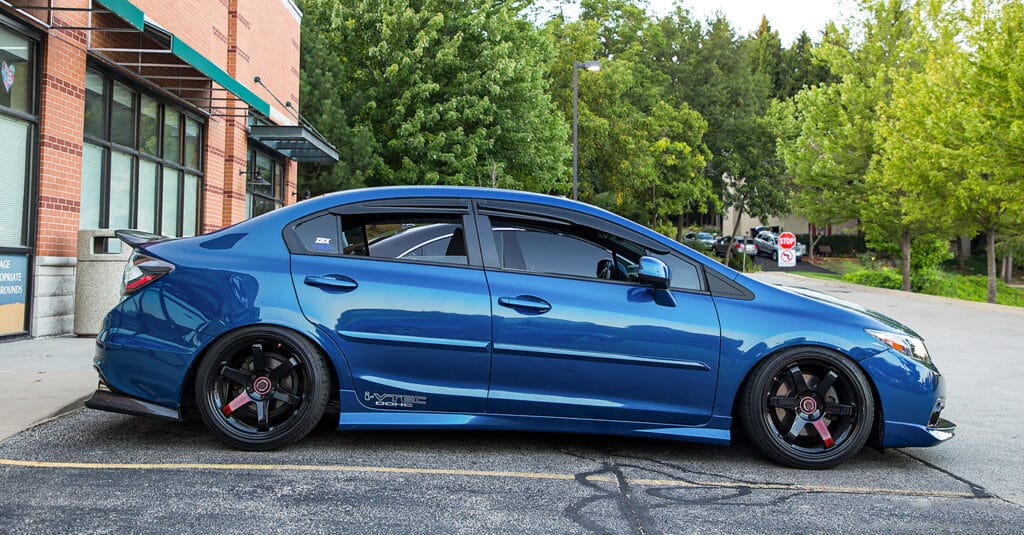
As we touched on earlier, the Civic is an excellent platform for modifications. But you must understand what you intend with the mods, as in whether it’s just aesthetics, performance, or perhaps a bit of both.
Tasteful aesthetic mods for your Honda Civic include aftermarket wheels, body kits, and lowering springs to improve the visual appeal and stance.
Handling upgrades like wider/stickier tires, coilovers, weight reduction, and your standard issue bolt-ons are also worth considering.
Performance upgrades for the Honda Civic start from basic items like cold air intakes, aftermarket exhaust systems, superchargers or turbochargers, forged internals, and multi-stage ECU maps.

Since Honda engines are robust and dependable, they can handle quite a bit of abuse. It’s not uncommon to see K20s with 500-plus hp and B16s reliably pushing 300 whp.
Since most of the Civics we’ve pointed out are devoid of any fancy electronics, they are less complicated to work on and can be ultra-reliable.
Of course, all of these modifications won’t be cheap. Plan and budget your build accordingly. Start slow with small upgrades and work your way to installing some of the more expensive items.
However, if money is no object, the sky’s pretty much the limit when it comes to modifying your Honda Civic.
Best Tuner Honda Civic: Conclusion
If you want to daily drive a reliable car with decent horsepower figures, the Honda Civic is an excellent platform. You can easily source an old Gen-5 or Gen-6 model and get on with building your dream project car.
Aesthetic mods make little to no difference in performance and are more about visual appreciation. Let’s say you bought a 1997 Civic Si. You’re happy with its factory performance but not super into its looks.
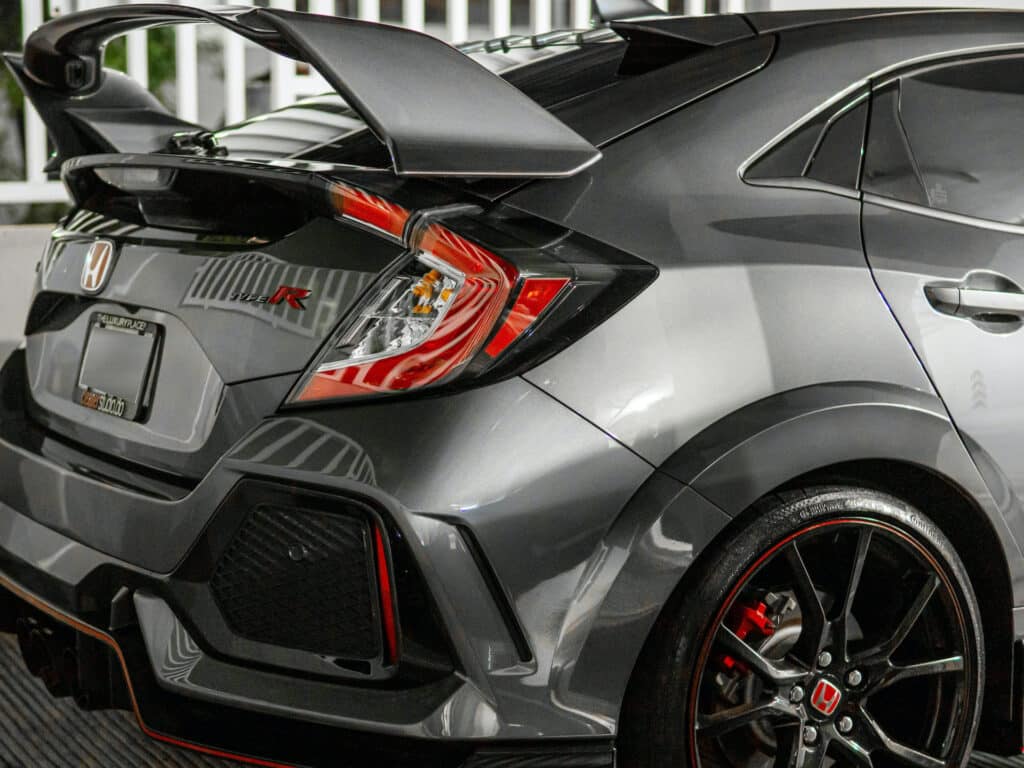
Investing in some quality wheels and tires should address that. Or, you could install lowering springs or even a subtle body kit to enhance its overall curb appeal.
We’d recommend getting the Si models versus regular Civics, as they are relatively sporty right out of the box. So you won’t have to spend a lot to make it exciting to drive.
However, since most Honda Civics are not big on horsepower numbers from the factory, investing in some stage 1 mods is advised to make the most out of your purchase.
If you’re looking for a sensible daily with a bit of oomph, 250 hp to 275 hp is pretty much the sweet spot.
However, if it’s a track toy you’re after, pushing beyond the 350 hp mark will make a lot more sense. But you’ll be spending more on upgrading some of the auxiliaries to handle that sort of power.
That brings us to the end of our Honda Civic guide. What’s your favorite Honda Civic of all time? Let us know by leaving a comment below!

